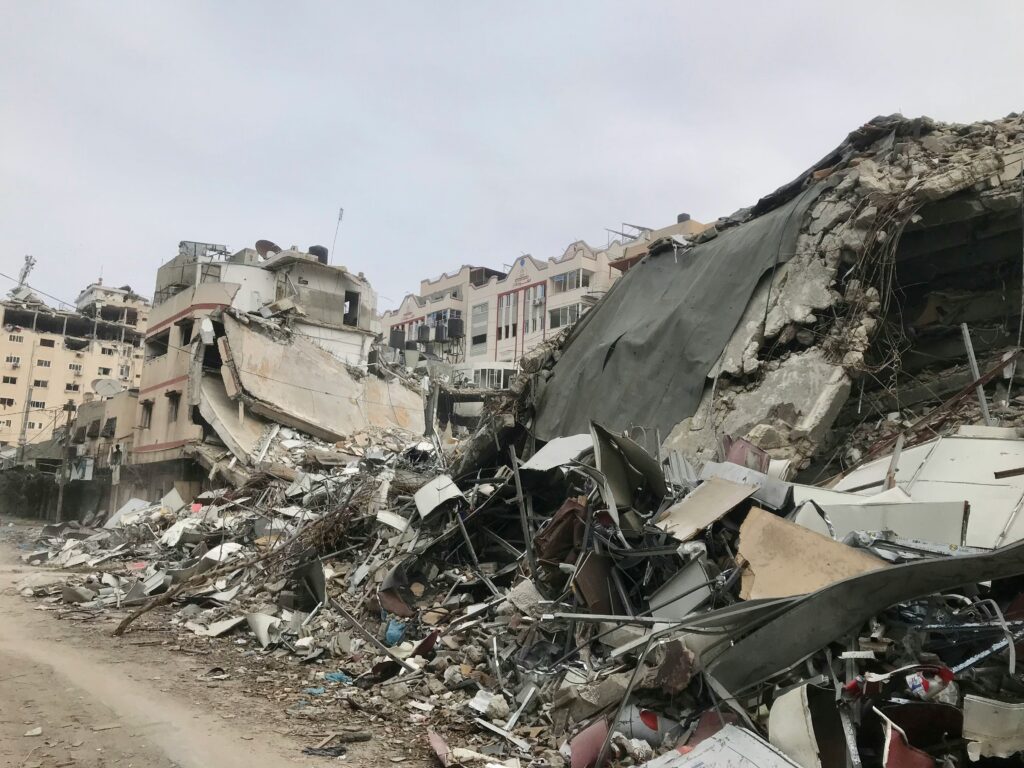
An outrageously misleading petition titled “Antisemitism/Anti-Jewish Hate within the American Psychological Association” is now circulating among psychologists and related health professionals. Drafted by leaders of a group that calls itself “Psychologists Against Antisemitism,” the petition is long on accusations and generalizations but shamefully short on clarity and evidence.
The petition authors claim that they “have documented extensive evidence of antisemitic discourse and concerning behavior across APA divisions.” But they don’t share their “archive” of “extensive evidence” and it’s unclear exactly what they count as “antisemitic discourse” or “concerning behavior.” Nevertheless, it isn’t hard to figure out what seems to be their primary grievance: the critical attention some APA members and groups have given to Israel’s devastating and indiscriminate 16-month onslaught against the Palestinian people, following the Hamas-led attacks of October 7, 2023 in which 1,200 people were killed and 250 were taken hostage.
At this point, tens of thousands of Gazans, most of them women and children, have been killed by the Israeli military; many more have suffered serious and life-altering injuries; Gaza’s healthcare, education, and vital water systems have all been destroyed; and nearly the entire population of Gaza — two million Palestinians — has been displaced at least once. Yet the petitioners seemingly portray expressions of horror and outrage over this mass destruction as instances of antisemitism. This strategy is, of course, the standard playbook of influential “pro-Israel” organizations like the Anti-Defamation League (which officially categorizes pro-Palestinian rallies as antisemitic) and “Stand With Us” (a U.S.-based advocacy organization that has received funding from the Israeli government and is also known as the “Israel Emergency Alliance”).
To be clear, discrimination, prejudice, hostility, or violence against Jews as Jews — i.e., real antisemitism — is indeed a very serious threat, especially from white supremacists and similar groups increasingly ascendant in the United States and around the world. But accusations of antisemitism that are used to silence, harass, and punish anyone who speaks out in support of Palestinian rights and against Israel’s aggression are something entirely different. They are false and deceptive charges, often designed to draw attention away from Israel’s merciless assault.
As the president of the Society for the Study of Peace, Conflict, and Violence (APA’s Division 48), I participated along with 24 other division members in the careful drafting of a statement that this petition now characterizes as containing “misinformation” and “anti-Jewish sentiments.” I encourage everyone to read our statement — “Psychologists Call for Justice and Accountability: Confronting the Atrocities Against Palestinian Lives” — which is available here. Where exactly is the alleged misinformation, and where exactly are the purported expressions of hostility toward Jews?
Over the years, I haven’t shied away from criticizing the APA’s leadership for what I consider misguided choices. But this petition’s accusations of “systemic” and “virulent” antisemitism within the APA strike me (a Jew) as not only spurious but also egregious. If the petitioners want to prohibit criticism of Israel’s mistreatment of Palestinians, they should say so directly. And if they believe that Israel’s laying waste to Gaza and its people is morally just, they should say that too. What they shouldn’t do, in my view, is disguise and defend unwavering support for Israel — regardless of its actions — by leveling charges of antisemitism against anyone who disagrees with their stance or makes them feel uncomfortable about it.
I hope that the APA’s leadership doesn’t capitulate to the bullying and intimidation tactics so prevalent in some “pro-Israel” circles today. Actual expressions of antisemitism must be condemned whenever and wherever they occur. But legitimate concerns about massive human rights violations should be elevated — not suppressed — by any organization truly committed to advancing human welfare.